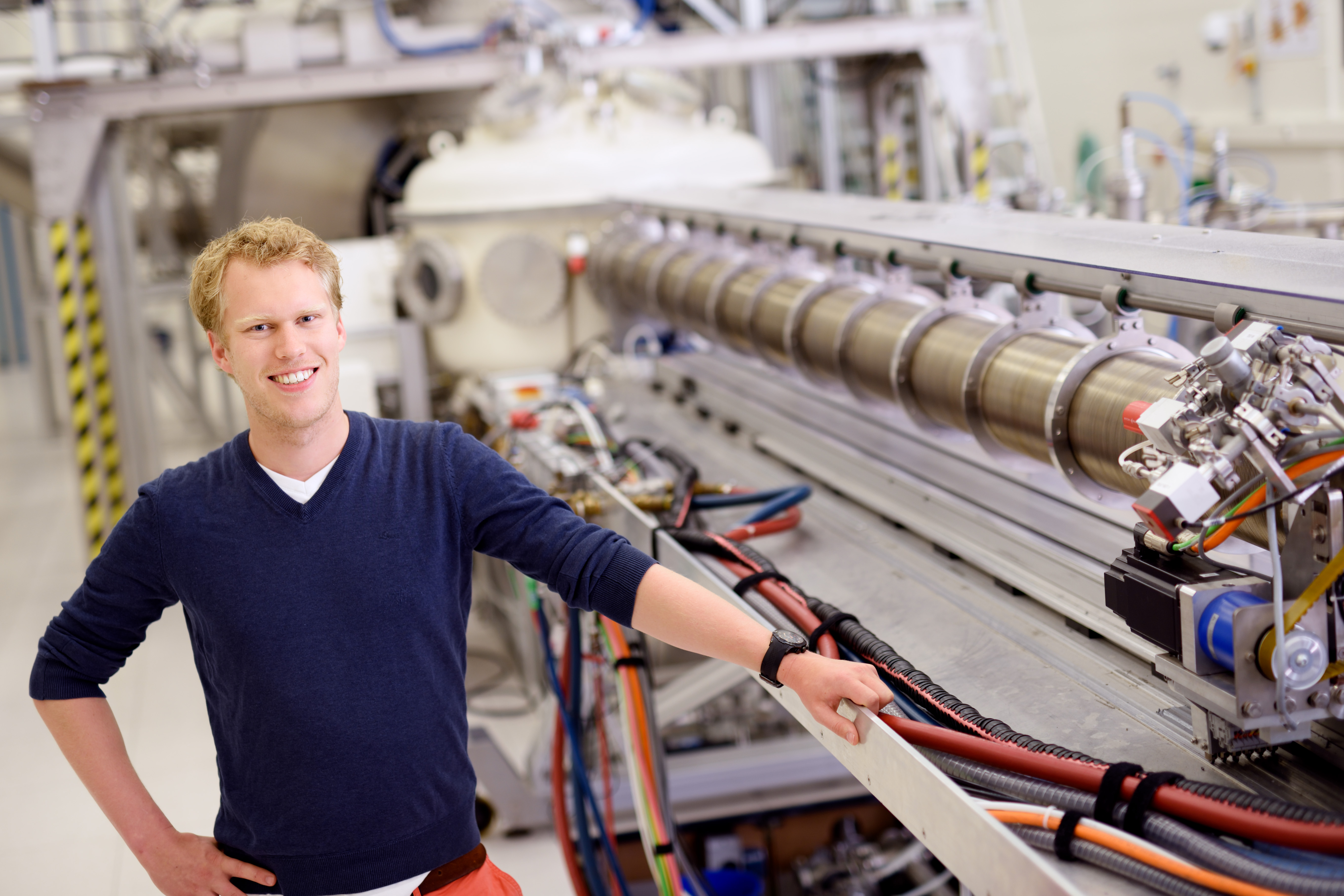Who is the greatest scientific talent in the Netherlands and Belgium? Heat shield specialist Peter Rindt has a chance to win the title of New Scientist Science Talent (Wetenschapstalent) 2021. The editors of New Scientist chose the fusion researcher as a nominee from more than 50 submissions.

Fusion researcher Peter Rindt has been nominated as one of the science talents. For the next round, votes from the public count and anyone can vote online on the New Scientist website. The ballot box is open till Monday May 3 at 23:00. Of the five talents with the most votes, the jury will choose numbers one, two and three. They will then be able to present their work during New Scientist Live: Science Talent. The winner will be announced at this event on June 10, 2021.
Who is Peter Rindt?
Peter Rindt is working on fusion, the energy source which powers the sun. The major common goal of his research field is the construction of a fusion reactor. Fusion energy is sustainable and shows great promise, but the process of building a fusion reactor is complex. One of the biggest obstacles at the moment is the development of heat shields, which are supposed to protect the fusion reactor’s reactor chamber. Rindt: “The power facing those shields is comparable to what spacecraft have to withstand upon re-entry into the atmosphere. These shields must sustain that load for years.”
Liquid metals don’t crack
Rindt is working on the development of heat shields made from liquid metal. After all, liquid metals cannot crack from the heat. And when liquid metal is lost (through evaporation, for example), it can easily be replenished. This allows the shields to self-heal, so to speak. “The next challenge is to keep the liquid metal in place. For this, we went to work with 3D-printed sponge structures. This combination is now producing groundbreaking results.”
Peter Rindt is a scientist, engineer and entrepreneur. He works as a postdoc at DIFFER (Plasma Material Interactions) and TU/e (Science and Technology of Nuclear Fusion) and is one of the leading designers of liquid metal heat shields for the European fusion reactor DEMO, the successor to the large international research reactor ITER. Rindt received the EUROfusion Engineering Grant for his work.
Nominees
In alphabetical order, the 15 science talents nominated are:
• Aurélie Carlier (Maastricht University)
• Femke Danckaers (University of Antwerp)
• Kay Deckers (Maastricht University)
• Caroline Gevaert (University of Twente)
• Marion van den Heuvel (Tilburg University)
• Joleen Masschelein (Catholic University of Leuven)
• Barbara De Meester (Vlaams Instituut voor Biotechnologie)
• Anne Meeussen (Leiden University)
• Ward Munters (Catholic University of Leuven)
• Edwin Pos (Utrecht University)
• Peter Rindt (Eindhoven University of Technology, DIFFER)
• Julian Schaap (Erasmus University Rotterdam)
• Didier Snoeck (Ghent University)
• Niko Wanders (Utrecht University)
• Niels de Winter (Vrije Universiteit Brussel)
The jury
The jury panel consists of the following persons:
• Jorgen D’Hondt, professor at the Vrije Universiteit Brussel (chair)
• Melanie Peters, director of the Rathenau Instituut (chair)
• Jeroen de Ridder, chair of the Young Academy in the Netherlands
• Sylvia Wenmackers, co-chair of the Young Academy in Flanders
• Jim Jansen, editor-in-chief of New Scientist
In their assessment, the jury will consider the impact of the research, its originality and the extent to which the researcher is able to bring it to the attention of the wider public.
New Scientist Live: Science Talent
During the New Scientist Live: Science Talent celebratory event, the three finalists will take the stage and present their research. The evening’s main speaker is virologist Ab Osterhaus, who will provide an insight into the world of vaccine development. The close harmony quartet Yellow Submarine will provide a musical intermezzo and the evening will conclude with champagne: the announcement of the New Scientist Science Talent 2021.
More information
- Want to vote for Peter Rindt or one of the other nominees? Head to the ballot box: www.newscientist.nl/polls/new-scientist-wetenschapstalent-2021
- Peter Rindt gives a lecture at DIFFER on April 22, 2021. Guests are welcome, please register.
- Interview on PhD research: Hora Est! DIFFER Annual Report
- Follow Peter Rindt on Instagram
- Research group Plasma Material Interactions
Go to the News page.